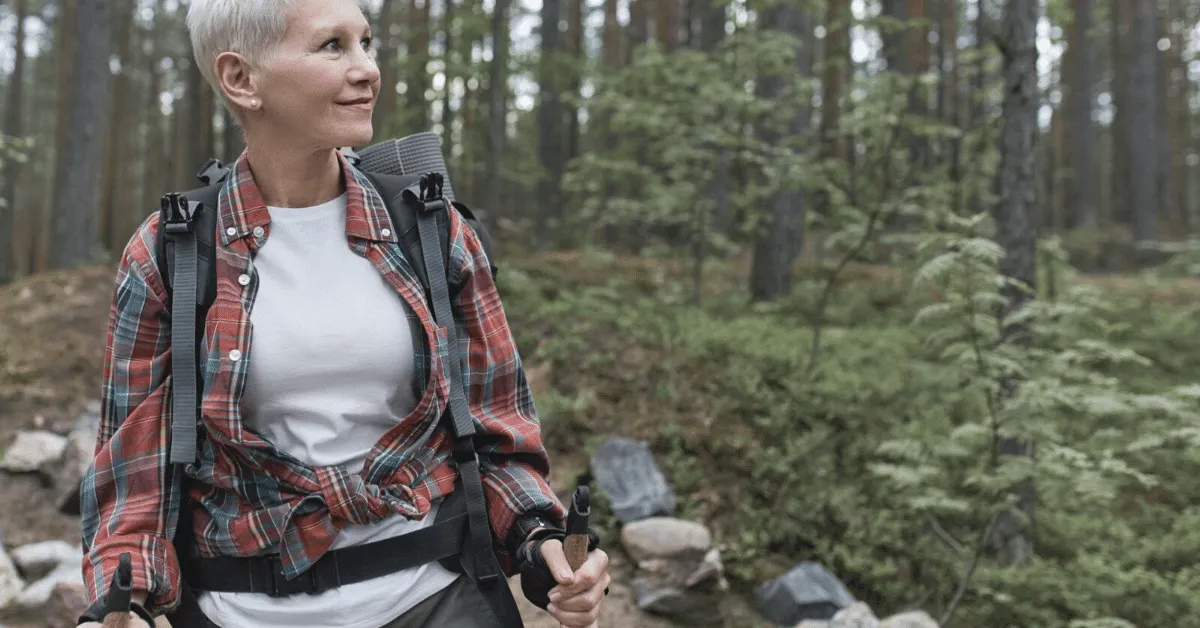Travel for singles over 60 is experiencing a surge in popularity, as more individuals embrace the freedom and fulfillment of solo adventures in their later years. This burgeoning trend reflects a shift in societal attitudes towards aging and a growing desire among seniors to explore the world on their own terms, discovering new cultures, and forging unforgettable memories. This article delves into the planning, logistics, and social aspects of solo travel for this dynamic demographic, offering practical advice and inspiring stories to empower seniors to embark on their dream journeys.
From choosing the perfect destination to navigating the complexities of travel insurance and budgeting, we cover key considerations to ensure a safe, enriching, and memorable experience. We’ll explore diverse accommodation options, discuss strategies for combating loneliness, and highlight ways to stay connected with loved ones while embracing the independence of solo travel. Ultimately, this guide aims to empower seniors to confidently plan and enjoy the adventure of a lifetime.
Health and Safety Concerns
International travel offers unparalleled opportunities for adventure and personal growth, but for seniors traveling solo, prioritizing health and safety is paramount. A well-planned trip, factoring in potential health risks and proactive measures, ensures a smoother, more enjoyable experience. Failing to adequately prepare can lead to unforeseen complications, significantly impacting the overall trip.Pre-trip health consultations and necessary vaccinations are essential safeguards for senior travelers.
These consultations allow medical professionals to assess individual health conditions, identify potential risks associated with the destination, and recommend appropriate preventative measures. This proactive approach can prevent serious illnesses and complications while abroad.
Pre-Trip Medical Consultations and Vaccinations
Before embarking on any international journey, a comprehensive consultation with a physician specializing in travel medicine is strongly recommended. This consultation should include a review of the traveler’s medical history, current medications, and any pre-existing conditions. The physician will assess the specific health risks associated with the planned destination, considering factors such as the prevalence of infectious diseases, water quality, and local healthcare infrastructure.
Based on this assessment, the physician will advise on necessary vaccinations, recommend preventative medications (such as malaria prophylaxis), and provide guidance on maintaining good hygiene practices while traveling. For example, a trip to a region with a high incidence of malaria would necessitate a consultation to determine the appropriate anti-malarial medication regimen. Similarly, vaccinations against diseases like Hepatitis A and Typhoid fever are often recommended for international travel, especially to developing countries.
Documentation of all vaccinations and medications is crucial for easy access should medical attention be needed.
Potential Health Risks and Preventative Measures
International travel presents several potential health risks for older adults. These risks can include, but are not limited to, infectious diseases (e.g., malaria, typhoid, cholera), foodborne illnesses, altitude sickness, heatstroke, and exacerbation of pre-existing conditions. Preventative measures can significantly mitigate these risks. Maintaining a healthy diet and ensuring adequate hydration are crucial for preventing foodborne illnesses. Staying in well-maintained accommodations can help minimize exposure to insect-borne diseases.
For destinations at high altitudes, gradual acclimatization is recommended to reduce the risk of altitude sickness. Packing appropriate clothing and sunscreen helps prevent heatstroke. Regular exercise and maintaining a healthy lifestyle before and during travel can help manage pre-existing conditions. Carrying a comprehensive first-aid kit containing essential medications and supplies is also strongly recommended. Finally, purchasing travel insurance that includes medical evacuation coverage is a vital safety net.
Accessing Medical Assistance While Traveling Internationally
Accessing medical assistance as a solo senior traveler in a foreign country can present unique challenges. Before departure, it is crucial to research local healthcare facilities and emergency services. Knowing the local emergency number and having a readily available list of English-speaking doctors or clinics in the area can be invaluable in case of a medical emergency. Travel insurance policies often provide assistance with locating and contacting medical professionals, arranging appointments, and facilitating medical evacuations if necessary.
Carrying a copy of one’s medical history, including a list of current medications and allergies, along with contact information for family and emergency contacts, is highly advisable. Furthermore, registering with one’s country’s embassy or consulate before the trip allows for easier contact in case of emergencies. Having a clear understanding of the local healthcare system and the costs associated with medical care can also help avoid unexpected financial burdens.
Accommodation Options for Solo Travelers: Travel For Singles Over 60

Choosing the right accommodation is crucial for a positive solo travel experience, especially for seniors. The ideal lodging should offer comfort, safety, and convenience, allowing for a relaxing and enjoyable trip without unnecessary stress. Several options cater specifically to the needs of older travelers, each with its own advantages and disadvantages.
Hotel Accommodations for Solo Seniors, Travel for singles over 60
Hotels offer a range of amenities and services that can be particularly appealing to solo senior travelers. Many hotels provide single occupancy rooms at competitive rates, eliminating the cost of sharing a room. Furthermore, hotels often have on-site staff available 24/7, providing a sense of security and readily available assistance if needed. Features such as accessible rooms with roll-in showers and grab bars, elevators, and well-lit corridors are increasingly common, enhancing safety and convenience for older guests.
Many hotel chains also offer loyalty programs, which can provide discounts and other perks for repeat customers. However, the impersonal nature of some large hotels might not suit every traveler, and the lack of kitchen facilities can be a drawback for those who prefer self-catering.
Guesthouses and Bed and Breakfasts
Guesthouses and bed and breakfasts (B&Bs) offer a more intimate and personalized travel experience. These smaller establishments often have a family-run atmosphere, creating a welcoming environment for solo travelers. Many B&Bs offer individually decorated rooms, creating a unique and charming stay. The personal touch from the hosts can provide valuable local insights and recommendations. Accessibility features might be less standardized than in larger hotels, so it is crucial to inquire directly about specific needs before booking.
However, B&Bs may not always offer the same level of 24/7 staff availability as hotels.
Vacation Rentals for Independent Seniors
Vacation rentals, such as apartments or houses, provide a greater degree of independence and privacy. These options often include kitchen facilities, allowing for self-catering, which can be beneficial for budget-conscious travelers or those with specific dietary needs. The extra space can also provide a more comfortable and relaxed environment. However, the lack of on-site staff means that assistance might not be readily available in case of emergencies.
Seniors should carefully consider the location and accessibility of the property, ensuring it is safe and easily navigable. Furthermore, security features like well-lit entrances and secure locking mechanisms should be confirmed prior to booking.
Finding Suitable Accommodation
Several websites and resources cater specifically to the needs of older travelers. Booking.com, Expedia, and Airbnb all allow for filtering by accessibility features and other criteria important to seniors. Specialized travel agencies focusing on senior travel often have curated lists of accommodations known for their senior-friendly amenities. Reading online reviews and checking the property’s accessibility information directly with the management before booking are crucial steps in ensuring a comfortable and safe stay.
Embarking on a solo journey after 60 offers unparalleled opportunities for self-discovery, personal growth, and the creation of lasting memories. While planning and preparation are crucial, the rewards of independent travel far outweigh the challenges. By carefully considering the factors Artikeld in this article – from choosing the right destination and securing adequate travel insurance to budgeting effectively and staying connected with loved ones – seniors can confidently embrace the freedom and fulfillment of solo exploration, turning their travel dreams into exciting realities.
The world awaits, and the journey is yours to define.
Examine how armed forces vacation club cruises can boost performance in your area.


